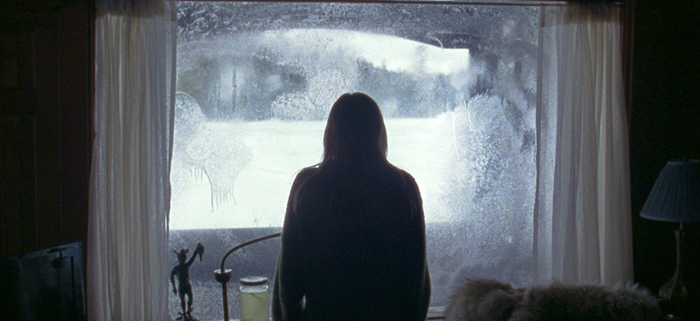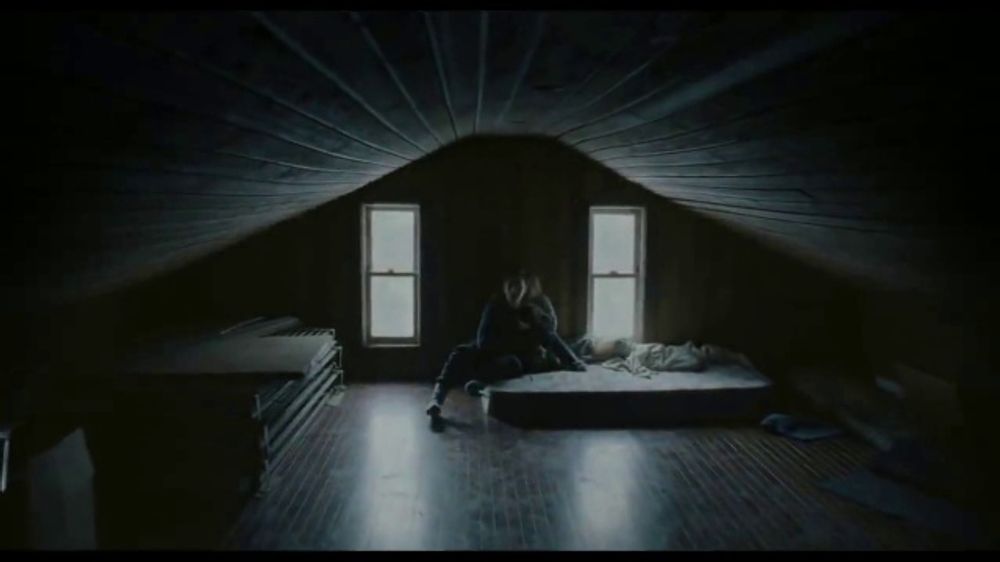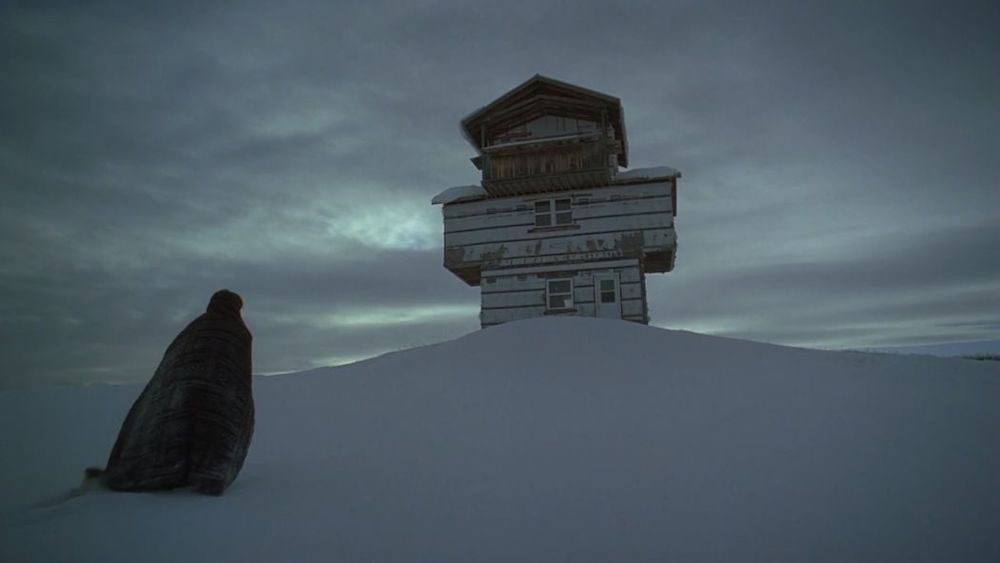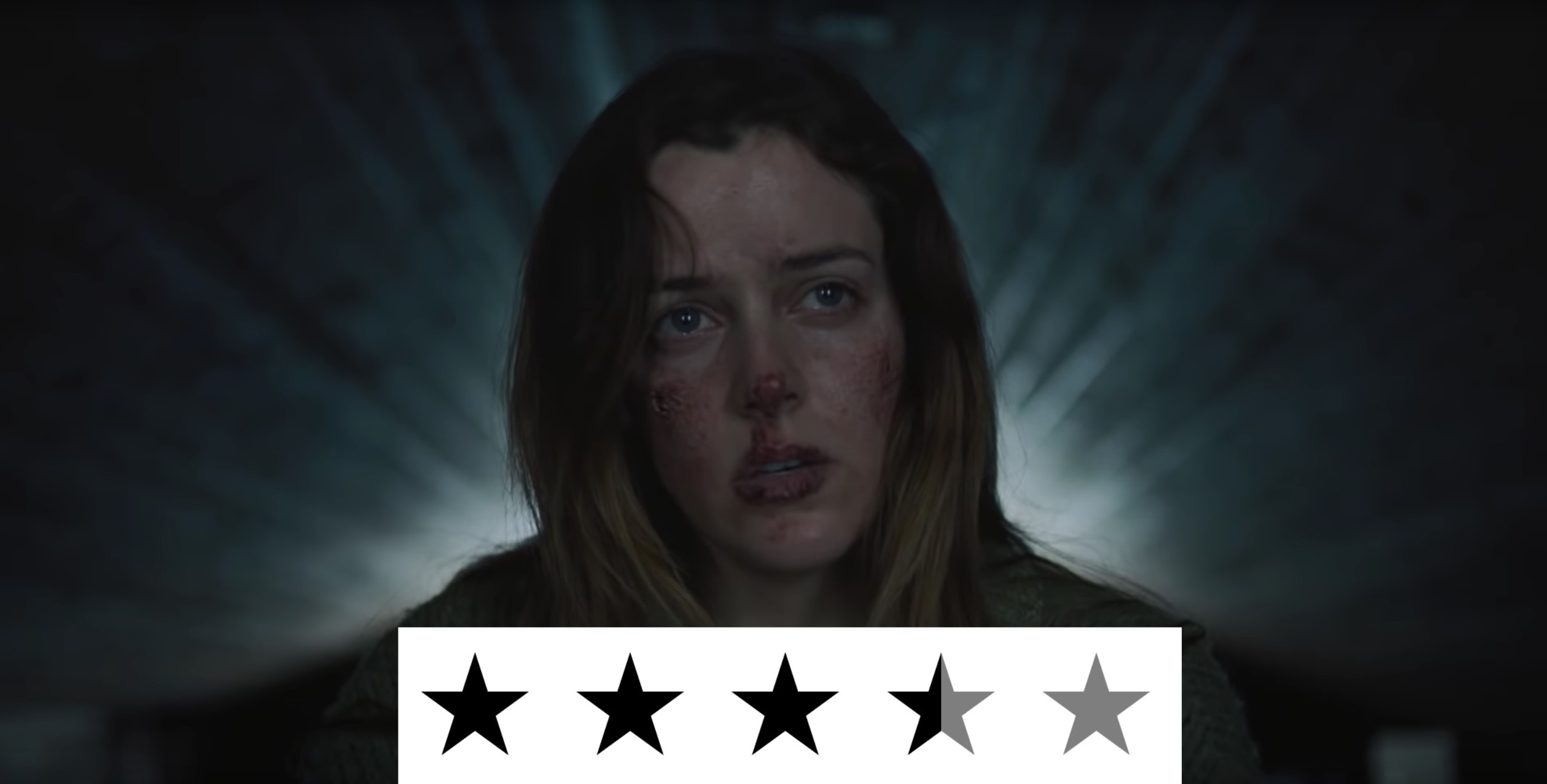If the harsh corners and thick wooden doors are not confining enough, then the rampant torrents of snow that befall the resident of the titular holiday getaway would surely cause anyone to doubt their sanity. This supposition does not even take into account the roguish misbehavior of grim forces, whether those be the products of perceived of actual reality.

“The Lodge” is certainly not the first film to delve into the murky implications that repressed trauma and misguided religious zeal can have upon an individual. It lingers above his or her head, as a looming threat, always primed to strike given the right impetus.
Bedecked with the harsh decoration and sharp corners of this domineering lodge, sitting atop a snow-covered hill and angled on a tilt, the film’s visual aesthetic displays in its simplest form how imposing the atmosphere is bound to be. Low-pitch anxiety ruminates through the entire home until it climaxes in an outright squall. However, the question that must be beckoned of “The Lodge” is what exactly lies underneath.
After their parents’ separation, two children – Aiden (Jaeden Martell) and Mia (Lia McHugh) – are forced to stay in a desolate family cabin with their father’s new girlfriend – Grace (Riley Keough) – over the Christmas holiday. They are resentful for their situation and thus a frigid relationship forms, as their father must return home for work before joining them by December 25.

That is until a thick pall spreads above the lodge and leaves the characters trapped in an inexorable hellscape of nightmares. The plot is practically threadbare, as has become common of the modern atmospheric horror genre, and the characters are practically left to their own devices to survive – and most importantly to react – in this dark concoction of a world.
As the maddening downpouring of snow takes hold, mysterious events begin to occur throughout the house, and our characters are left with no answers. Essentially, they become entranced in a purgatory-like state in which there are no practical solutions, as the thin line between life and death begins to fade. As their sanity dissipates, so follows their ultimate grip on reality. This sensation is particularly palpable because directors Severin Fiala and Veronika Franz manage to establish this sensation with a stark, intimidating flourish.

Every hallway is narrow and constricting, with its dark brown wood paneling and clearly defined corners. In a way forming the shape of a rectangle or square, greatly evoking the image of a coffin. It is almost as if the characters are trapped in such a pine box and buried deep within the Earth, or at least it feels that way in their minds. The visual style of “The Lodge” is surely distinct and effective, yet one might wonder what greater purpose are these on-screen terrors in service of. The self-contained world of “The Lodge” is very unsettling and provocative in its frights yet identifying the resonance of it all might serve to be a far more arduous task.
The most sizeable flaw with this film is the fact that after the experience is complete and the dust settles, one is left to wonder why exactly he or she should care. In the moment, the horror is exhilarating as the tangled web of malice is woven, yet as the credits roll the underlying emptiness bleeds through and saturates the film’s conclusion. A common flaw of atmospheric horror is sacrificing the emotion of each frame for a foreboding appearance. When intertwined with a very bare script, an end product that lacks empathy can very readily ensue. “The Lodge” certainly is well constructed and refined, yet its straight-faced nature causes it to appear inaccessible and its soulless, shimmering veneer perhaps restricts its viewership to a limited few – an audience that will truly appreciate it, but a small one all the same.


Like!! Great article post.Really thank you! Really Cool.